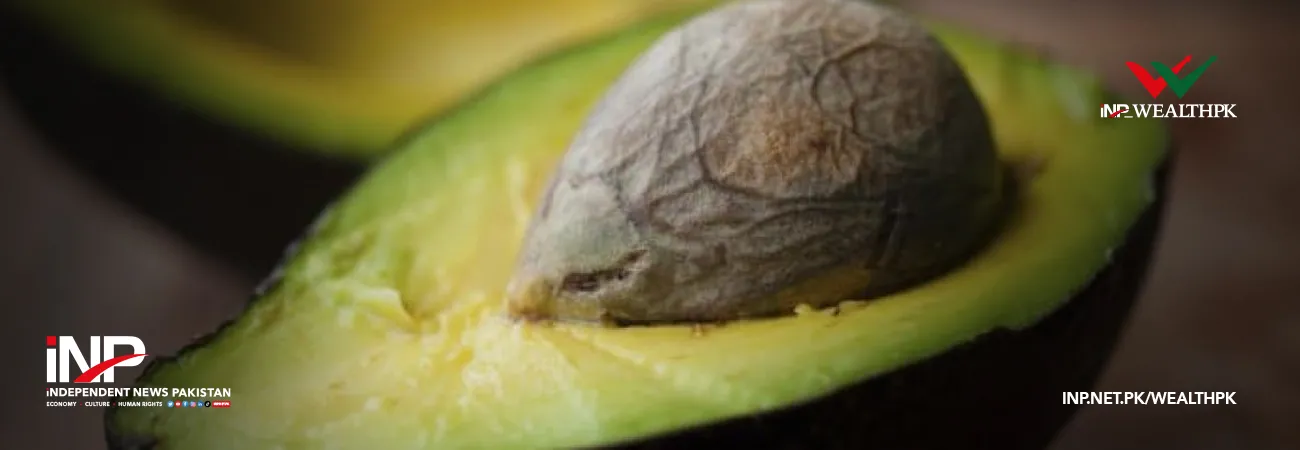INP-WealthPk
Azeem Ahmed Khan
The avocado business in Pakistan is poised to make a significant contribution to the country's agricultural sector. With successful domestication of the avocado fruit, growers stand to benefit from its high-value sales. Although it is a relatively new crop in Pakistan, avocado is steadily gaining popularity due to increased consumer demand for nutritious foods. An agricultural scientist told WealthPK, “Avocado is not only high in value and nourishment but also an entirely organic plant with resistance to pests and diseases.” Presently, the approved cultivars in Pakistan yield between 40 and 60 kilogrammes per plant. Considering the current market value of Rs1,400 to Rs1,500 per kilogramme, farmers can earn a substantial income, making avocado farming a lucrative venture compared to other fruits. The introduction of avocado in Pakistan can be traced back to the 1980s when it was brought into the country through an Italian-funded initiative called "Fruit Vegetable and Olives."
Two varieties, namely Fuerte and Cyclone Purple, were initially recommended for introduction due to their suitability to Pakistan's climate and soil conditions. Subsequent research conducted at the National Agricultural Research Centre (NARC) in Islamabad resulted in the domestication of avocado plants. Four avocado hybrids were produced from reciprocal crosses of mother stock, and all four of them received approval for widespread cultivation in Pakistan. These cultivars are known as NARC-Avo-Fuerte, NARC-Avo-Cyclone Purple, NARC-Avo-1, and NARC-Avo-2. "These four types have been approved for general cultivation in potential areas such as the Potohar region, south Punjab, upper Balochistan, and several regions in Khyber Pakhtunkhwa," the agricultural scientist said. Consequently, cities like Murree, Islamabad, Layyah, Muzaffargarh, Swat, Peshawar, and Mardan are suitable for avocado cultivation.
In addition to the existing four, the NARC is currently evaluating eight other avocado types. Furthermore, the government of Punjab is working to adopt some types in the region of Tret in Murree. While many farmers are expressing an interest in cultivating these plants, the limited number of mother plants poses a challenge, as NARC only produces 2,000 to 3,000 plants annually. Importing plants to meet the growing demand is not a simple process due to the risk of introducing pathogens. As a result, domestication of the plants at NARC followed a rigorous standard procedure that spanned around eight years. Avocados have a large seed that fits loosely in the centre chamber and smooth, medium-thin skin that peels off easily. The flesh has a rich, pale green colour. Although the taste is neither sweet nor sour, people need to train their taste receptors to appreciate the unique flavour. Locally grown avocados are preferred due to the favourable conditions, making them superior to imported ones.
Health professionals describe avocados as a full tonic or super-food that is antioxidant and anti-carcinogenic, packed with essential minerals and vitamins. Rich in fiber, vitamins (such as K, C, E, B6), folic acid, and minerals (potassium, magnesium), avocados offer numerous health benefits. “Avocados can serve as a natural substitute for multivitamin pills,” the scientist suggested. Avocados are commonly consumed raw, used as sandwich fillings, or added to salads. The pulp can also be frozen and used in milkshakes and ice cream. Avocado oil, extracted due to its numerous benefits similar to olive oil, commands high prices in the market. However, despite its high demand, Pakistan is still unable to meet the fruit demand, which has hindered oil extraction. Presently, avocados are either sold online or in big stores in posh areas.
Unlike many other fruits, avocados continue to mature after being harvested. They are stored for a few days until they soften and improve in taste. Ripe avocados yield to gentle pressure and have green skin. When inquired about the time it takes for avocado plants to bear fruit, the scientist responded, "If grafted plants are grown, they begin producing fruit in five to six years, and if seedlings are planted, they produce fruit in eight to nine years.” With proper care, avocado plants can have a long lifespan. Some plants cultivated at NARC in the 1980s are still productive. Considering the fruit's high price, level of output, favourable climate, and soil conditions, the avocado business holds tremendous potential to expand and significantly contribute to Pakistan's agricultural sector.
Credit: INP-WealthPk













